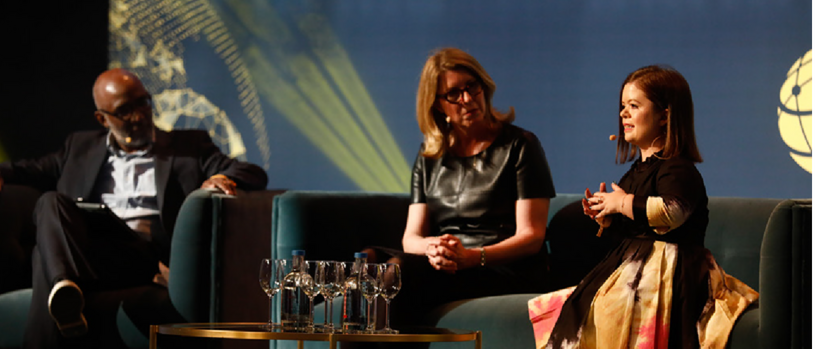Consumers dictating that diversity should be at the heart of business

How people see themselves and their personal identity is increasingly significant in people’s choices, not just their buying decisions but the brands with which they identify, Trevor Phillips, Chair of Green Park told the World Retail Congress yesterday morning in Amsterdam.
“It is important to see that there are major opportunities as well as challenges,” he said, as he advocated for retailers to see diversity as core to their future business success.
In an impassioned call for retailers to think more about customers who differ from the “norm”, Sinead Burke, academic, writer and advocate, recounted her own experience of shopping in fashion stores where she cannot reach rails, lock fitting rooms or see above the cash counter.
“I am not egotistical enough to demand that stores are redesigned for me,” she said. “But the difference is empowering your staff members to engage with me and ask if they can help. That humanises the situation.”
Making the business case for greater inclusivity was a recurring theme of the session. Elaine Bowers-Coventry, Chief Customer Officer, Coca-Cola, said that this led to them reviewing the role of women within the business “we took a commercial look at the role of women and how wel were reflecting the places in which we operate.”
The result is that Coca-Cola has boosted the number of women in senior positons across management levels and, said Bowers- Coventry, “it has become a business imperative that women are given access to progress.”
This requires open conversations, curiosity and facts, she said. “Everyone has had the feeling that they haven’t been included at some point in their life, so you need to reach for empathy. I think some of the new ways of thinking have come from disruption – many start-ups begin by looking at outcomes, which is a similar way of thinking.”
She advocated that senior leaders recognise the value that is added to their businesses and start to drive the change. She added: “What really made the change was when there was a clear vision, measurements and specific opportunities created.”
Burke added that often it is about awareness because if “no-one on the board is disabled they are not thinking about spaces. Quotas and tokenism are not ideal but we can’t wait for ideal conditions. There needs to be some flexibility, because currently different voices are absent. It takes bravery, because large organisations are often not comfortable looking at flaws within the business, but you must commit to doing some research, to see where you currently stand.”
)
)
)
)